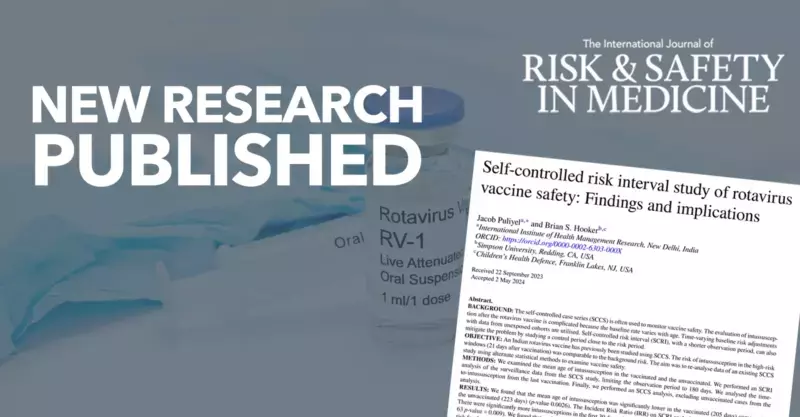
A recent study published in The International Journal of Risk and Safety in Medicine has uncovered a concerning link between the Rotavac vaccine, used extensively in India, and an increased risk of intussusception in infants. This condition, where part of the intestine folds into itself, can lead to severe complications if not treated promptly. The research, conducted by Dr. Jacob Puliyel from the International Institute of Health Management Research and Dr. Brian Hooker from Children’s Health Defense, challenges previous findings that deemed the vaccine safe. By employing an alternative statistical method, they discovered a 1.6-fold increase in intussusception risk post-vaccination, along with a lower mean age of onset for the condition in vaccinated infants.
Evaluating the Methodology Behind the New Findings
The study re-examined existing surveillance data using the self-controlled risk interval (SCRI) method instead of the previously utilized self-controlled case series (SCCS). This alternate approach revealed previously unnoticed risks associated with the Rotavac vaccine. The researchers found that the incidence of intussusception was notably higher within the first month after vaccination, decreasing gradually over time. This new analysis suggests that earlier studies may have overlooked critical risk factors due to methodological limitations.
Dr. Puliyel and Dr. Hooker's innovative use of SCRI provided a more accurate picture of the vaccine's impact on infant health. Their findings indicated that the standard SCCS method is ineffective when the vaccine alters the age of onset for intussusception. Specifically, the study identified 93 cases of intussusception within the first 30 days following vaccination, compared to 63 cases in the subsequent 30 days. This significant difference underscores the importance of re-evaluating past SCCS analyses and highlights the need for more robust surveillance methods.
Raising Awareness Among Parents and Caregivers
The implications of this study extend beyond scientific circles, emphasizing the urgent need for increased awareness among parents and caregivers about the potential risks of the Rotavac vaccine. Early recognition of intussusception symptoms is crucial for timely medical intervention, which can be life-saving. Dr. Hooker stressed the importance of educating parents about the signs of intussusception, such as blood and mucus in stools, which can easily be mistaken for infectious dysentery.
In regions where the vaccine is administered as part of national immunization programs, particularly in rural and underserved areas, it is essential to ensure that parents are well-informed. Dr. Puliyel highlighted the vulnerability of infants in these settings, especially those born to poor or illiterate families who may not recognize the urgency of the symptoms. He called for greater transparency in post-marketing surveillance and urged the publication of data from original randomized control trials to better understand the true magnitude of the risk. This proactive approach aims to safeguard children's health and provide timely medical care when needed.
